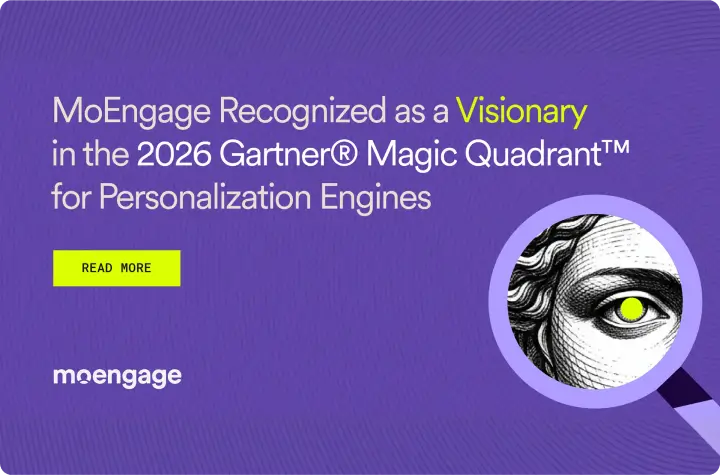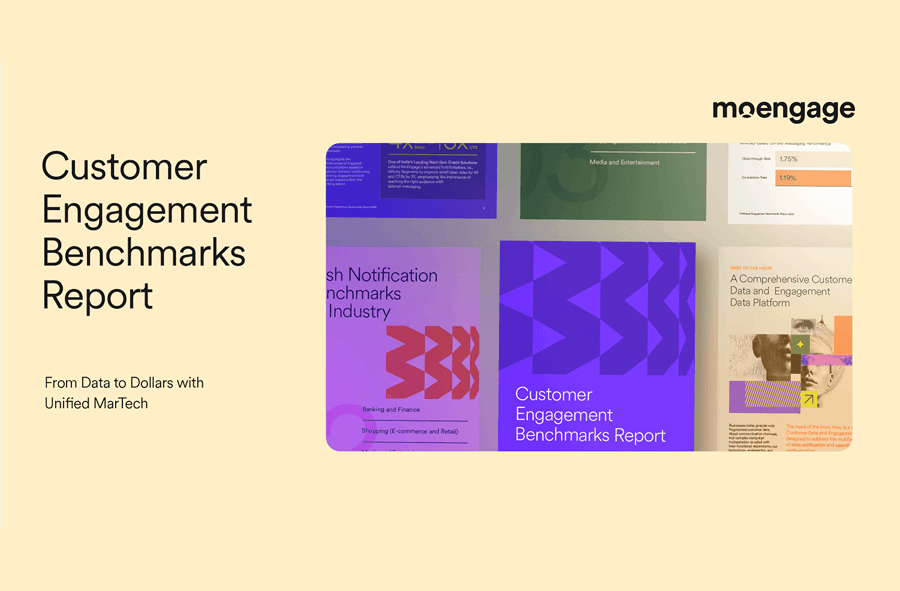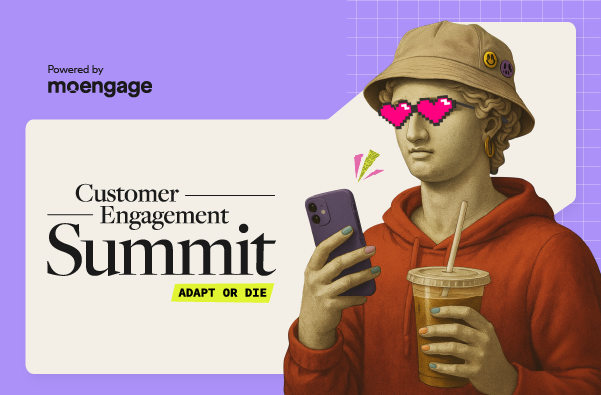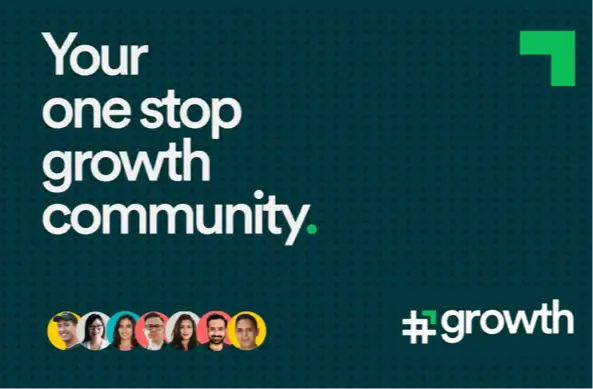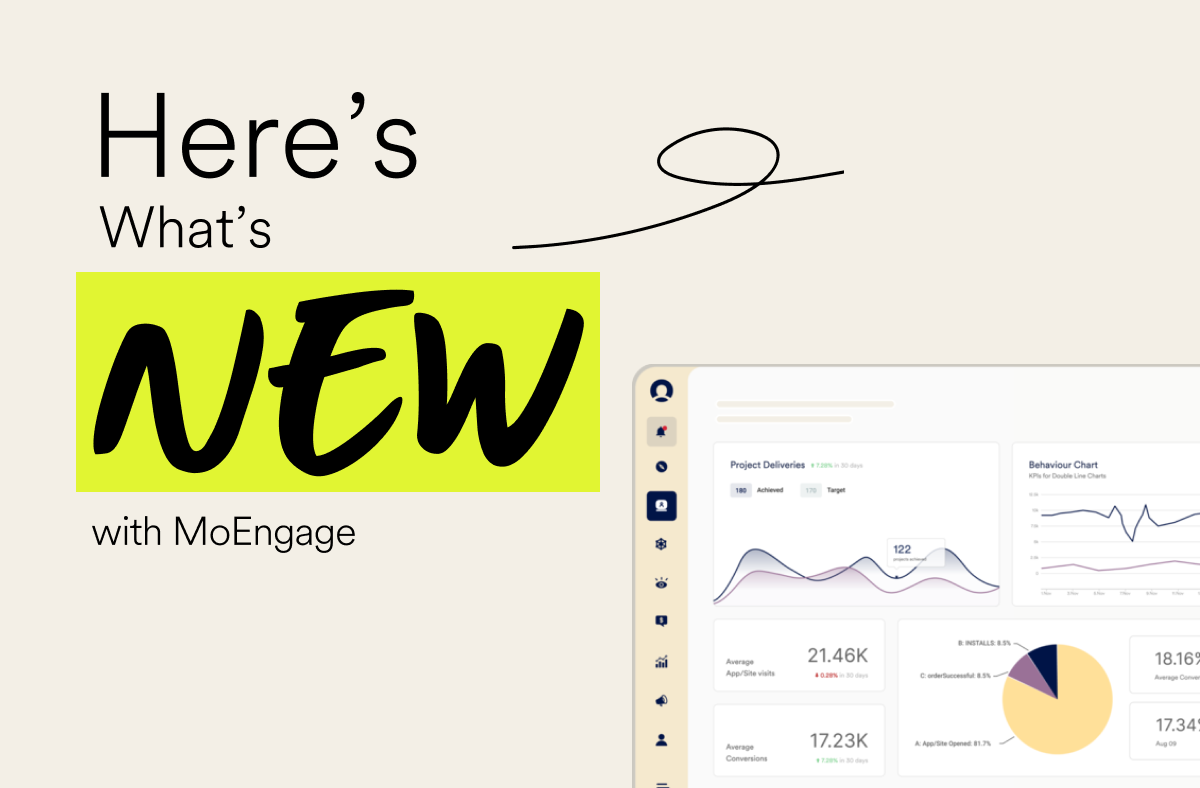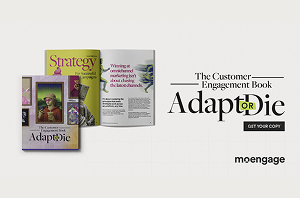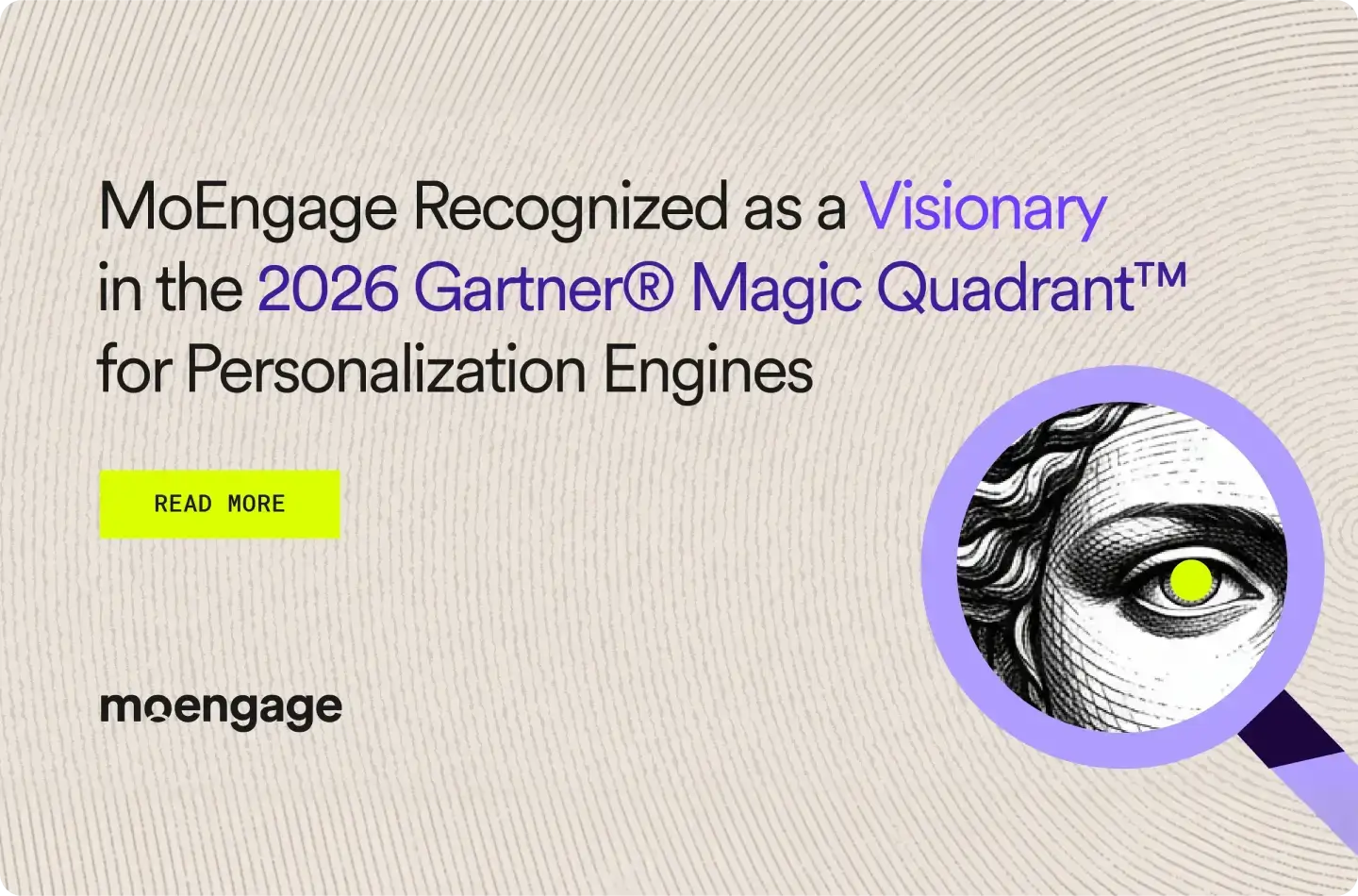WhatsApp Pricing Drop: Is WhatsApp The Right Channel for Transactional Messaging?

WhatsApp is doubling down on its role in critical transactional communications. The recent introduction of free service conversations and the upcoming availability of free utility messages within the 24-hour customer service window encourage brands to leverage WhatsApp for critical transactional, service, and utility messages instead of solely relying on SMS or RCS messaging.
In this article, we’ll explore the changes in WhatsApp API pricing worldwide and describe how product and tech teams can make the most of this update. First, you’ll need to understand the WhatsApp Business platform. If you’re already familiar with it, you can skip ahead to the section about the pricing update.
What Is WhatsApp for Business?
The WhatsApp Business platform enables brands to send promotional and transactional WhatsApp chat messages to customers via an API integration.
Unlike traditional message channels, WhatsApp encourages customers to respond instantly to businesses. The UI is built to make it super easy to respond via several options or free-form text.
Since WhatsApp is free for consumers to use, the barrier to entry is low, and brands can leverage this to have two-way conversations where customers respond to each message.
To get started with WhatsApp for Business, all you need is a Whatsapp Business account. Learn more about it here.
What Are The Benefits of WhatsApp for Business?
With over 2 Billion MAUs (Monthly Active Users) worldwide, WhatsApp is ranked as the most popular mobile messenger app in the world. It is one of the few messaging apps that are available uniformly in both the Android and iOS ecosystems while also being accessible through desktop interfaces across Windows and Mac.
WhatsApp provides brands with a unique opportunity to reach out to consumers on a platform they use every day. WhatsApp messages routinely have an average open rate of over 58%, with CTRs starting at a baseline of 15%.
Unlike traditional one-way channels, WhatsApp fosters two-way interactions. Customers can easily respond to messages, creating opportunities for richer engagement and immediate feedback, even within transactional flows.
Why Brands Should Use WhatsApp over SMS for Transactional Messaging
Compared to the open and click rates of traditional messaging platforms, WhatsApp provides supremely better engagement and offers brands an opportunity too good to ignore. There are many more benefits apart from this one, listed below:
- Cost-efficient: While SMS messages are charged based on the number of sends, WhatsApp offers significant cost advantages, especially for service-related interactions. While per-message pricing for utility templates will be introduced, brands can leverage the free, unlimited 24-hour service conversation window to send transactional messages.
- Two-way conversations: WhatsApp enables seamless transitions from transactional updates to support interactions within the same thread. This eliminates the friction of switching channels when a customer has a query related to a notification (e.g., delivery issue, billing clarification). The ability for customers to directly reply within the transactional context streamlines support and enhances customer satisfaction.
- Rich Media Capabilities: SMS is limited to plain text. WhatsApp allows you to include rich media like images (e.g., product visuals in an order confirmation), videos (e.g., how-to guides related to a purchase), and documents (e.g., invoices, tickets). This richer context can significantly improve the clarity and usefulness of transactional messages.
- Enhanced Trust and Security: WhatsApp’s end-to-end encryption provides a more secure channel for transmitting sensitive transactional information, like OTPs or account-related updates, compared to SMS, which is less secure.
- No character limitations: With SMS, each message should be <160 characters. If you exceed this limit, you will be charged for two (or more) messages, depending on the length. Meanwhile, WhatsApp’s unit message price is the same, irrespective of length, and brands can leverage this to send detailed information, such as ticketing updates, images, attachments, and more.
- Easier approval for templates: SMS approvals can get cumbersome when dealing with varying regulations across different geographies, while WhatsApp templates are easily approved.
- Free entry points, as explained below.
What are WhatsApp Free Entry Points?
The WhatsApp for Business platform provides free entry points, meaning a conversation is free for up to 72 hours if initiated through a Facebook CTA (Call-to-Action) or an ad that clicks to WhatsApp.
Besides free entry points (conversations initiated via Facebook CTAs or ads that click to WhatsApp, which are free for 72 hours), WhatsApp also offers unlimited free service conversations.
Types of WhatsApp Business Messages
There are four types of conversations you can conduct with customers using WhatsApp across countries:
- Utility conversation
-
Authentication conversation
-
Marketing conversation
- Service conversation
Let’s examine each one in detail.
Utility Conversations
The utility conversation category includes critical alerts (service messages or transactional messages) such as post-purchase notifications, billing reminders, payment updates, address change notifications, and delivery status alerts.
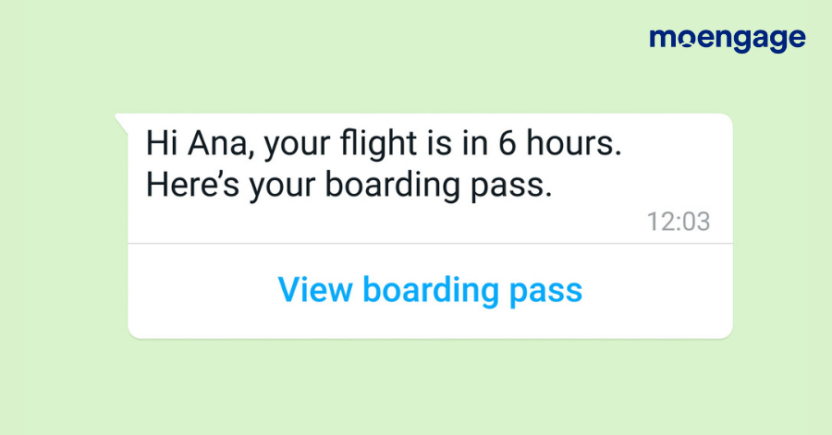
You can leverage WhatsApp Business to send utility conversations across a wide variety of use cases for different industries, such as:
-
Banking: Send service conversations for financial transaction alerts, card swipe notifications, account expiry alerts, cheque clearance messages, card activation messages, EMI updates, and real-time fraudulent transaction alerts.
-
Retail and E-commerce: Send WhatsApp utility messages for delivery status notifications, address change updates, payment update messages, order confirmation or cancellation messages, store closure messages, and transaction confirmations.
-
Airlines: Initiate WhatsApp utility conversations for flight booking confirmations, payment updates, gate change notifications, flight timing alerts, baggage processing notifications, and real-time flight arrival/departure notifications.
-
Media and Entertainment: Send utility messages with billing reminders, payment renewal messages, plan change updates, and order confirmation or cancellation receipts.
Utility messages are critical to a customer’s interaction with brands. If a customer replies with a query within 24 hours of receiving these updates, the conversation remains within the free service window, allowing seamless support.
These messages need to be sent in real time through a scalable, reliable infrastructure that can handle volume and scale as you go, provide comprehensive delivery and failure logs, and allow you to add or switch channels without any developer dependencies.
If you’re looking for a unified transactional messaging infrastructure, check out MoEngage Inform.
Authentication Conversation
Authentication conversations enable you to verify the legitimacy of a transaction using WhatsApp. You can do so via One Time Passcodes (OTPs) sent at different points of the customer journey.
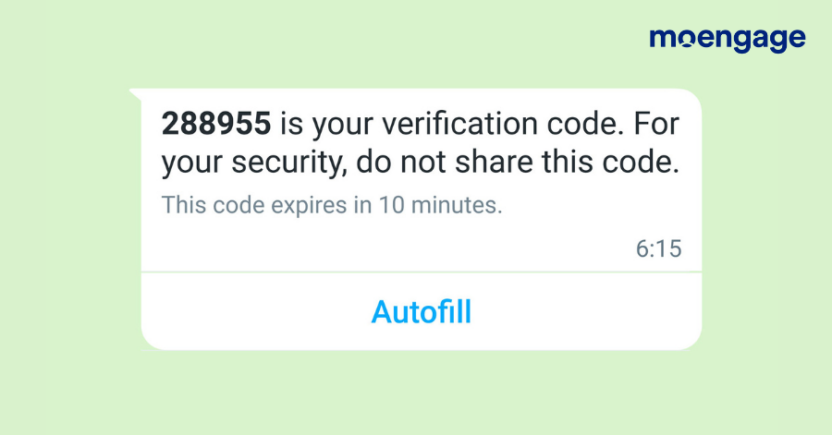
For example, if you need a customer to verify their phone number during onboarding, you can send an authentication message to confirm their phone number over WhatsApp. Meanwhile, for an existing customer who wants to conduct a financial transaction, you can send OTPs over WhatsApp to verify if they are making the transaction.
You can extend authentication conversations to cover OTPs for account recovery, security verification, or integrity challenges.
Marketing Conversation
Marketing conversations include any kind of promotional message, such as special sale announcements, seasonal promos, discounts, abandoned cart messages, card upgrade offers, event announcements, and exclusive rewards.
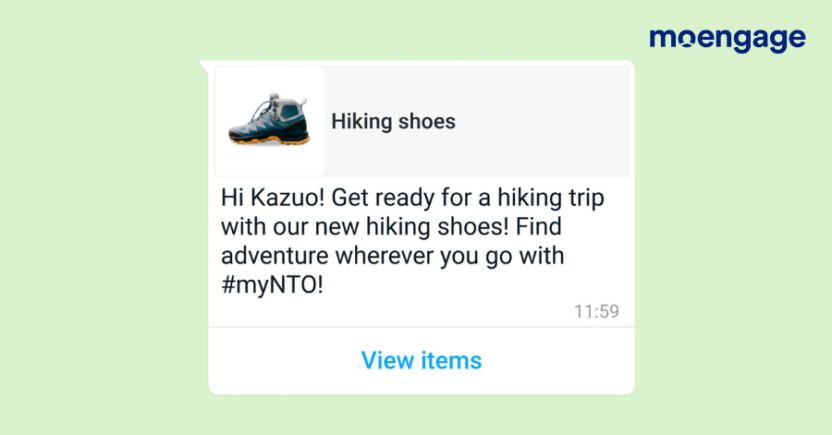
Service Conversation
Service conversations are support and service conversations initiated by customers. WhatsApp provides a 24-hour window within which businesses are encouraged to respond.
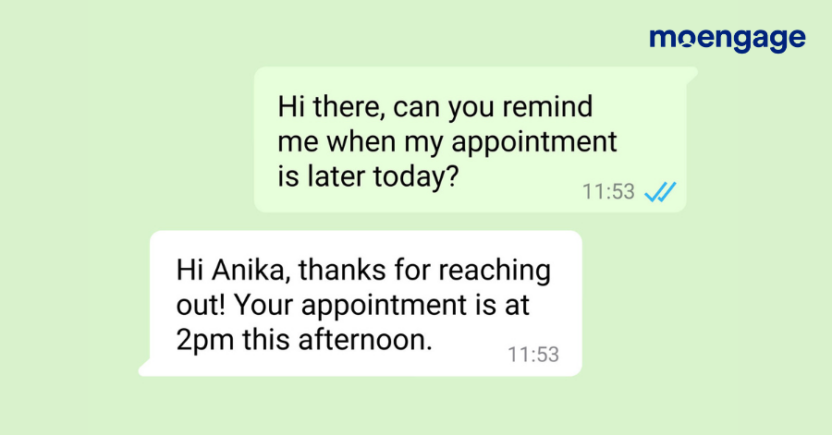
It’s crucial to understand that the 24-hour service conversation window begins when a customer initiates a conversation or when a business replies to a customer’s message. Importantly, if you send a utility or authentication message and the customer replies within this 24-hour window, any subsequent support interactions within that same window are classified as a free service conversation. Proactive transactional messaging can naturally open a support channel without incurring additional costs, fostering better customer engagement and issue resolution.
WhatsApp Business API Cost
The WhatsApp Business API offers different price points for each conversation category. Apart from the conversation category, your location and your customers’ location also play a part in determining your price point per message type.
As of November 1, 2024, service conversations initiated by customers and the subsequent business replies within the 24-hour window are completely free via the WhatsApp Business API. Starting July 1, 2025, WhatsApp will introduce per-message pricing for utility, marketing, and authentication templates. However, utility templates sent as a reply within the 24-hour customer service window (triggered by a customer’s message) are also free from April 1, 2025.
The Evolving WhatsApp Pricing Landscape and Its Implications for Transactional Messaging
WhatsApp’s evolving pricing model, with free service conversations and the upcoming free utility messages within the customer service window, aims to encourage valuable, non-promotional interactions, potentially increasing the cost of marketing messages to disincentivize spam and enhance the customer experience.
This pricing update positions WhatsApp as a viable, possibly cheaper alternative for transactional messaging, compared to traditional channels such as SMS and upcoming channels like RCS (Rich Communication Services).
Leveraging WhatsApp’s Current and Future Pricing for Optimal Transactional Messaging
With its current and upcoming changes, WhatsApp presents a highly cost-effective solution for transactional messaging, offering superior engagement and support capabilities compared to traditional channels like email or SMS. Brands should capitalize on the current free service conversations and the upcoming free utility messages within the customer service window to send transactional messages.
Combined with its reach and customer familiarity, WhatsApp’s evolving pricing makes it a strategic cornerstone for modern transactional messaging strategies, offering a compelling alternative to less engaging or potentially more costly channels.
Prioritizing WhatsApp for High-Frequency Transactional Messaging
Let’s consider an E-commerce order with a delivery promise of 24-48 hours. Typically, a customer would receive the following updates:
- Login OTP
- Order confirmation with the ETA and order ID
- Order out for delivery notification
- Order delivery confirmation
This translates to 3-4 potential messages in a short fulfilment cycle. With SMS, each of these would incur a separate charge. From a cost perspective, SMS is expensive for such scenarios, and the costs quickly add up.
In such high-frequency update scenarios, initiating transactional messaging via WhatsApp makes strong economic sense. You will only be charged for a single free service conversation (if the customer initiates or replies within 24 hours of a utility/authentication message) instead of 3-4 individual SMS messages. Even if the fulfilment extends slightly beyond a day, WhatsApp remains the most cost-effective option.
The same is true for high-frequency transactional messages with BFSI brands, such as:
- Login OTP
- KYC process initiated
- KYC status update
- KYC completed
By leveraging WhatsApp for these multi-step conversations, BFSI brands can save exorbitant costs from individual SMS messages for each step.
This strategic advantage of using WhatsApp for high-frequency updates also applies to:
- Return pick-up processes managed by E-commerce companies and their logistics partners.
- Online booking platforms for managing booking-related notifications.
- Quick commerce companies dealing with frequent and repeat customer orders.
- The travel industry, including airlines, which often send multiple messages to travelers on their journey day (e.g., booking confirmations, gate changes, boarding passes).
To set up a multi-step conversation with your customers, you need a WhatsApp business account and API integration.
We recommend leveraging MoEngage Inform, a unified transactional messaging infrastructure, to set up and send utility and authentication conversations across WhatsApp.
Leverage MoEngage Inform To Send WhatsApp Utility Messages
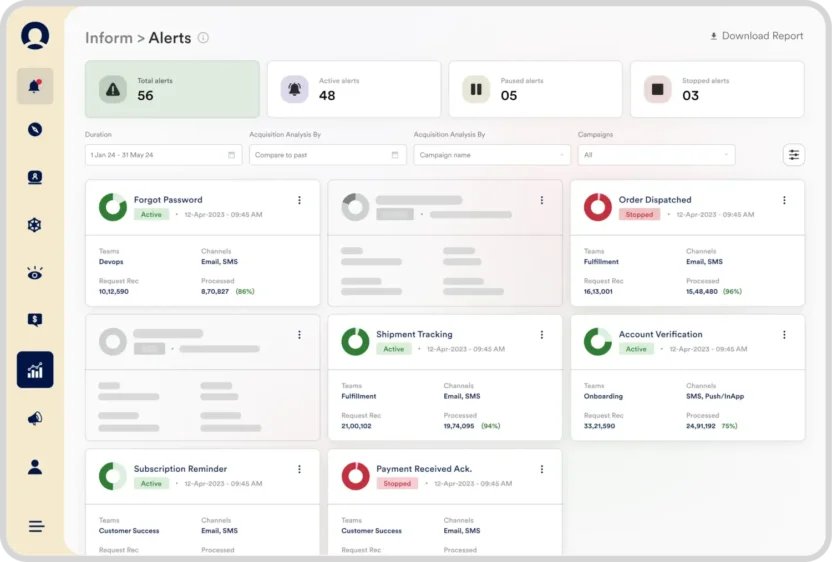
MoEngage Inform provides a unified platform to orchestrate your transactional messaging strategy across various channels, including WhatsApp. Our infrastructure is designed to help you leverage WhatsApp’s current free service conversation model and prepare for the upcoming per-message pricing, ensuring you maximize cost-effectiveness while delivering critical updates reliably and at scale. With features like intelligent routing and failover mechanisms, you can be confident that your transactional messages reach your customers in a cost-effective manner, fostering engagement and trust.


